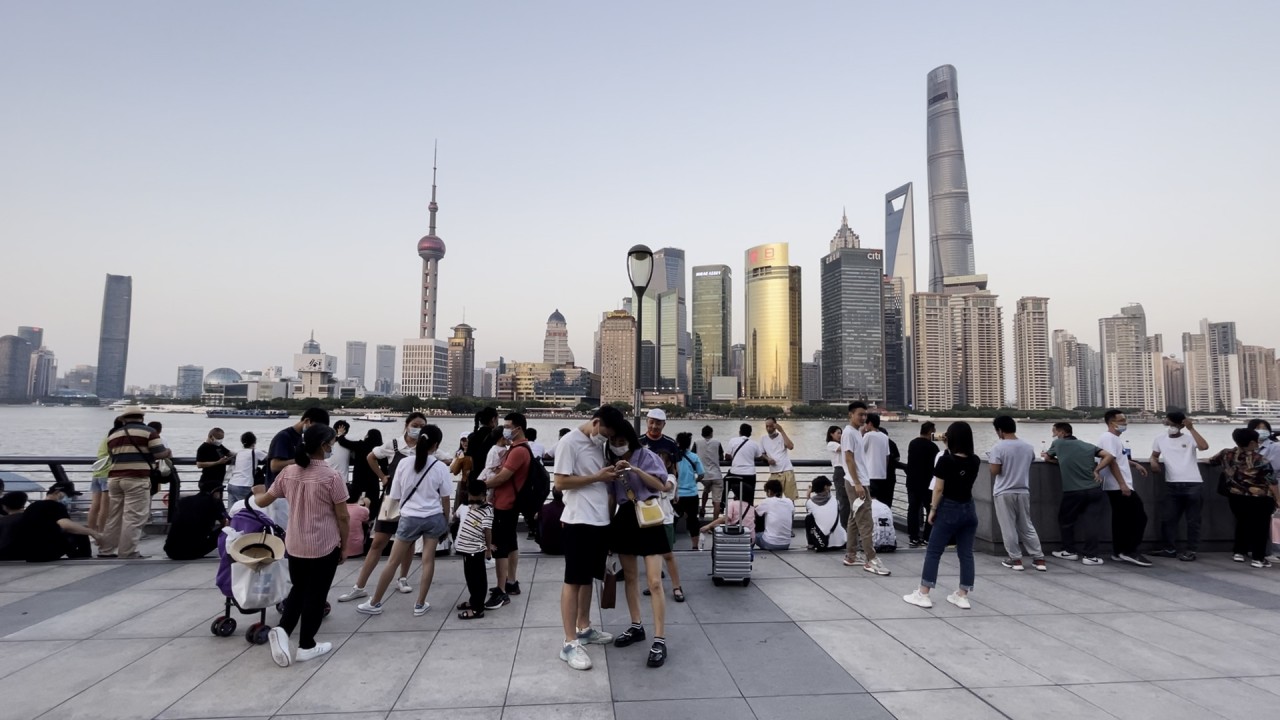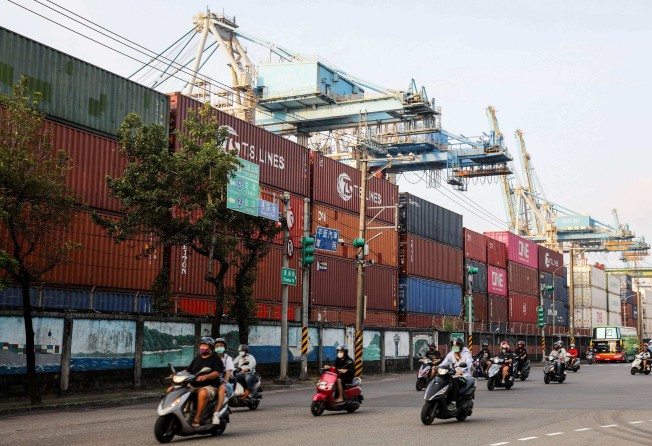
02:17
Chinese tourists return to Shanghai for first ‘golden week’ holiday since Covid rules eased

Signs of a recovery in economic growth in China’s official statistics continue to be mixed and affected by Covid-related measures.
For the first time in three months, factory activity expanded in September, with the manufacturing purchasing managers’ index (PMI) rising from 49.4 to 50.1, just in positive territory.
But a fall from 52.6 to 50.6 in the non-manufacturing PMI, which measures sentiment in the services and construction sectors, may be down to anti-Covid moves.
On balance the data indicates the economy has begun to stabilise after growth slumped to 0.4 per cent year on year in the second quarter.
Analysts say growth now hinges on hopes for significant relaxation of Covid measures after the Communist Party’s 20th national congress later this month. Without it progress will be more difficult, even with Premier Li Keqiang having personally driven supportive policy steps in the last quarter.
Beijing has been rolling out measures since May, including tax cuts and infrastructure spending, to cushion headwinds facing the economy and boost investor confidence.
But one of the main hurdles remains uncertainty. Because China does not maintain open and transparent access to information it is often difficult for outsiders to immediately understand what is happening, along with the policy and political logic behind it.
Needless to say, Covid has done nothing to make that any easier. A sense of uncertainty is the abiding impression of reporters who talk to foreigners in China. It may not be tangible, but it can be real, nonetheless, in the economy.
It can be difficult for investors to make decisions without feeling they know what the next 12 or preferably 24 months are going to bring. If changes in Covid policy do not come soon this will only add to anxiety exacerbated by an escalation of tension over Taiwan amid China-United States geopolitical pressures.
It remains important for the central government to stabilise the economy using physical and financial tools. But the more pressing issue now is to reduce the level of uncertainty by making policy direction clearer and explaining the rationale behind it.
In that regard it is not necessary to look back far to find examples of China unveiling a policy decision that weighs more heavily than anticipated on markets, prompting state media to interview an authoritative official source to clarify the real intentions.
This is a typical example of uncertainty. Restoring confidence by reducing the level of uncertainty will therefore help the economy.
That said, the central government is showing an understanding of where the problems in the physical economy lie and trying hard to address them.
Li has convened several high-level meetings to coordinate policy and implementation between several provinces and ministries, giving grounds for cautious optimism.